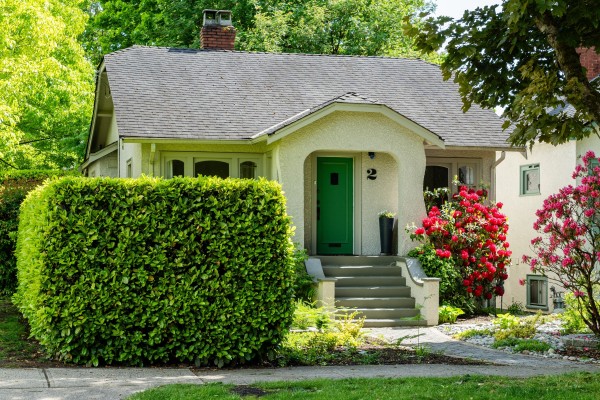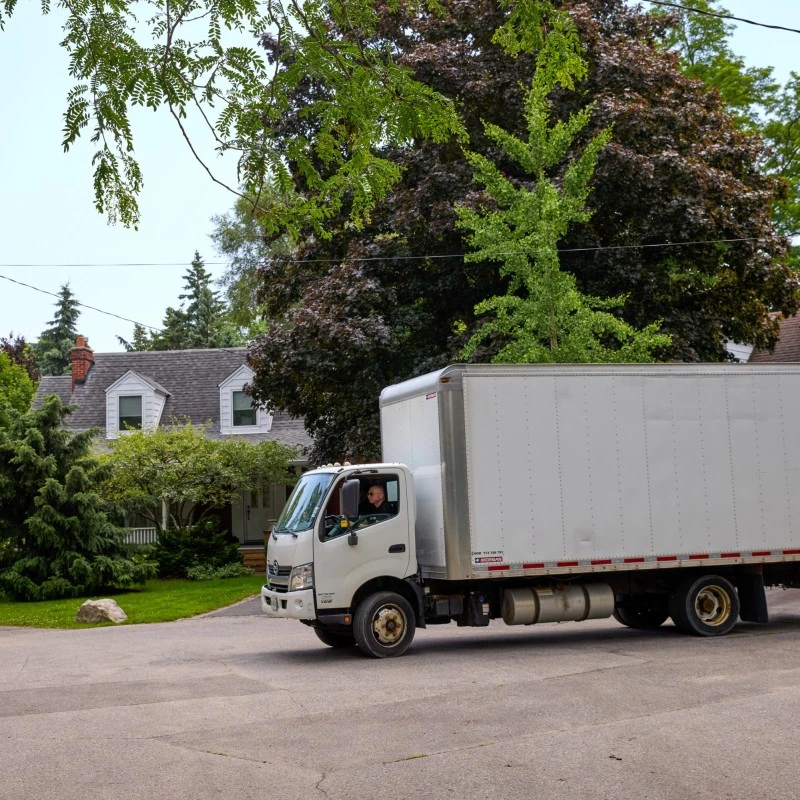The Cost of Living in Winnipeg [2025]
![The Cost of Living in Winnipeg [2025] The Cost of Living in Winnipeg [2025]](https://cdn.topmove.ca/image/blog/39475f2b513b1ab30806c09a48714d1e.jpeg)
Winnipeg is one of Canada’s more affordable medium-sized cities, with lower living expenses than larger cities and a provincial sales tax that’s lower than in Ontario and Quebec.
The city hosts natural attractions such as Assiniboine Park for nature lovers, a strong Métis presence and culture, and the historic Exchange District that hosts some of Winnipeg's most beautiful turn-of-the-century architecture.
Winnipeg’s arts and music scene is thriving and continues to grow, which is increasing tourism in the city. Winnipeg has a strong community feeling, in part due to its numerous festivals, performances, and gatherings.
Winnipeg winters aren’t for the faint of heart; cold is an understatement. If you're well-prepared and willing to embrace the season, you’ll do just fine. Good winter clothing, outdoor activities, and maintaining active connections with friends and family are the tickets to getting the most out of winter in Winnipeg.
Cities like Vancouver, Toronto, and Montreal get most of the attention, but Winnipeg has a lot to offer and is definitely worth considering. Keep reading to learn all about the current cost of living in Winnipeg.
Reasons to move to Winnipeg

Many sectors in Winnipeg contribute to the city’s strong job market, such as manufacturing and trade, healthcare, education, technology and innovation, finance and business services, and arts and culture.
There are a few niche industries that are particularly robust and continue to grow and offer diverse employment:
-
Aerospace: Winnipeg is the largest aerospace manufacturing centre in Western Canada, and the third largest in the country for exports.
-
Advanced manufacturing: Winnipeg is a hub for sub-sectors that include food, transportation equipment, machinery, chemicals, and metal manufacturing.
-
Information and Communications Technology: Winnipeg's ICT sector is considered one of the top emerging tech hubs in Canada.
-
Agribusiness: Not surprising for a city in the Prairies, agribusiness is one of Winnipeg's most important sectors.
What’s different about Winnipeg?
Winnipeg has a high quality of life, in part due to its low cost of living.
Its central location allows for somewhat easy access to other parts of Canada. It also has the benefit of four distinct seasons. The summers are hot and great for enjoying the surrounding lakes. Winters have a deep cold that is perfect for winter recreational activities, such as ice skating and hockey.
People in Winnipeg are generally friendly, giving a small-community welcoming vibe to a city of over 800,000 residents. If you can deal with mosquitos in the summer, you are set to live happily in Winnipeg.
Cost of living in Winnipeg
Rental prices in Winnipeg are relatively reasonable in comparison to larger Canadian cities.
Rent tends to be higher in the downtown area and more upscale neighborhoods, while properties in the suburban outskirts generally have lower rental rates. This is common for most cities.
When renting, there are a few factors to keep in mind. These include proximity to amenities and public transit, affordability, and safety.
Some of the best neighbourhoods for renting in Winnipeg include:
- Osborne Village
- St. Boniface
- River Heights
- Crescentwood
- Fort Rouge
- Wolseley
- Charleswood
- Tuxedo
- East Kildonan
Here are some average rental rates in Winnipeg, based on the type of home:
The average rental of a 1-bedroom apartment in Winnipeg is CA$1,353, CA$1,562 for 2 bedrooms, while a 3-bedroom house averages CA$2,131.
Rent prices vary greatly in Winnipeg, so it's best to do a lot of research before choosing a neighbourhood.
If you opt for roommates or share a rental with a partner, expect to pay around CA$500-850 rental per month.
The best online platforms to find or advertise room rentals are:
-
Craigslist
-
Kijiji
-
Facebook Marketplace
-
Roomies.ca
-
Rentals.ca
-
Zillow
-
Roomster
-
Zumper
Buying a property in Winnipeg
The average price for a home in Winnipeg is CA$433,250.
This is extremely affordable compared to Toronto or Vancouver. Vancouver’s average is 3x as high!
Home prices vary depending on the neighborhood. Winnipeg's most affordable neighbourhoods include:
-
East Kildonan
-
St. James
-
West End
-
Elmwood
-
Transcona
-
St. Vital
-
Weston
-
Brooklands
-
Point Douglas
-
St. Boniface
Winnipeg’s neighbourhoods of interest
Charleswood
Charleswood is a peaceful, semi-rural area whose residents appreciate its natural beauty and proximity to Assiniboine Forest and Harte Trail. It has all the amenities including great schools and medical facilities, at affordable prices. It’s family-friendly and even has a zoo!
The average rent of a 1-bedroom apartment in Charleswood is CA$1,313, while a 3-bedroom house averages a CA$2,070 rental.
Fort Garry
Fort Garry is home to the University of Manitoba, which keeps things lively and diverse. Students can find affordable apartments, and there’s no shortage of high-end homes. Athletes and sports fans appreciate the area’s numerous sports facilities, and foodies flock to the Pembina strip for endless dining choices. History buffs can appreciate the three major historic sites in Fort Garry.
The average rent of a 1-bedroom apartment in Ford Garry is CA$1,500, while a 3-bedroom house averages a CA$2,050 rental.
St. James
St. James is a suburban, family-friendly area with many green spaces, shopping centres, historic sites, museums, and easy access to Assiniboine Park.
The average rent of a 1-bedroom apartment in St. James is CA$1,260, while a 3-bedroom house averages a CA$1,890 rental.
Riverview
Close to the city centre, Riverview is loved by young professionals because of its numerous condos and apartments. It's close enough that residents can easily get to Osborne Village for endless nightlife and live music events.
The average rent of a 1-bedroom apartment in Riverview is CA$1,040, while a 3-bedroom house averages a CA$1,850 rental.
The Exchange District
The Exchange District is a beautiful, trendy area filled with historic architecture and a bustling arts scene. Winnipeg has the fastest-growing arts community in Canada, and many of the studios and galleries are found in the Exchange District. It’s a hotspot for professionals and creatives, and is coined the “Chicago of the North”.
The Old Market Square is a green space in the centre of the Exchange that hosts summer festivals, including the Winnipeg Fringe Theatre Festival and the TD Winnipeg International Jazz Festival.
The average rent of a 1-bedroom apartment in The Exchange District is CA$1,550, while a 3-bedroom house averages a CA$2,175 rental.
Crescentwood
If upscale is your thing, then check out Crescentwood. It is full of gorgeous historical estates, the streets are lined with big trees, and it has easy access to important amenities and recreational facilities. Crescentwood was designated as a Heritage Conservation District in 2023.
The average rent of a 1-bedroom apartment in Crescentwood is CA$1,525, while a 3-bedroom house averages a CA$2,550 rental.
Things to do in Winnipeg

Winnipeg is sometimes called the “Cultural Cradle” of Canada, and for good reason.
Here are some of the top experiences the city has to offer, including options to enjoy the natural beauty of Winnipeg.
Canadian Museum for Human Rights
The Museum of Human Rights is the best place to learn about human rights, history, and culture, especially about Canada. It’s a place that inspires learning, research, and open dialogue while providing exhibits and programs in both English and French.
Cost: General admission for adults is CA$18, including taxes. Seniors (65+) and students pay CA$14 each. Youth aged 7-17 can get in for CA$8, and children under 6 are free. Sundays are free admission.

Assiniboine Park and Zoo
Assiniboine Park is over a century old and attracts visitors year-round. Highlights include the Assiniboine Park Zoo, The Leaf (see below), trails, gardens, and open green spaces. Visitors can also check out free shows at the Lyric Theatre, public art displays, educational programs, and events.
Cost: Prices vary per exhibit or event.
The Leaf
Plant lovers can visit the Leaf to explore four indoor biomes: the Hartley and Heather Richardson Tropical Biome, the Mediterranean Biome, the Babs Asper Display House, and the Shirley Richardson Butterfly Garden. Outdoors, The Gardens at The Leaf spans nearly 30 acres of gorgeous green space, featuring six themed gardens: the Indigenous Peoples Garden, Kitchen Garden, Sensory Garden, Performance Garden, Seasonal Garden, and The Grove.
Cost: Adults (ages 18-59) pay CA$16.50, seniors (60+) and students with a valid ID pay CA$14.30. Children (3-17) get in for CA$9, and children under 2 years old are free.
Royal Canadian Mint
Winnipeg’s Royal Canadian Mint in Winnipeg is a leader in circulation coin design and innovation. Since 1976, this high-tech facility has produced every Canadian circulation coin and also creates coins for other countries. Visitors can take a tour to get a bird’s-eye view of the production floor, learn about the advanced technology used to mass-produce coins and discover the skill involved in coin design. Highlights include the record-breaking “Million Dollar Coin” and the 2010 Vancouver Olympic medals.
Cost: Adults (18+) pay CA$12, children (5-17) get in for CA$8, while seniors (65+) pay CA$10. Infants (4 and under) are free. If you go as a family (2 adults, 2 children) you pay CA$30.
FortWhyte Alive
FortWhyte Alive is an urban nature center built on reclaimed industrial land. Attractions include a bison prairie where visitors can see the majestic animals up close, extensive hiking and biking trails, and interpretive exhibits that highlight the history and ecology of the prairies. The center also features Manitoba's largest freshwater aquarium and areas for fishing, canoeing, and wildlife observation. It also supports environmental education, and sustainability initiatives, and has a farm program that focuses on local food production and youth employment.
Cost: Admission for members is free. Adults (18-64) pay CA$12, whereas older adults (65+) pay CA$11. Students with ID and kids (3-17) get in for CA$10. Kids (0-2) and First Nations, Inuit, and Métis are free.

Winnipeg Jets
What would a prairie city in Canada be without its local pro hockey team? Jets games are an exciting part of Winnipeg life, and even if you don’t like hockey, the hype and action will overtake you and guarantee a fun experience.
Cost: Winnipeg Jets tickets start at CA$22, with average prices ranging from CA$75 to CA$95 depending on seating and opponents. Tickets for playoff games significantly increase in price.
Winnipeg Events
Winnipeg is known for its community events, several of which showcase the cultures of its strong international population and arts community.
Some of the city's most memorable events include:
Festival du Voyageur
Every February, Winnipeg’s French-Canadian community hosts this winter celebration which features French music, traditional Quebecois and Acadian foods, and impressive snow sculptures.
Ticket prices vary depending on the event. Children 5 and under are free.
Folklorama
Winnipeg hosts the world’s longest-running multicultural festival in August, where you can try almost every cuisine under the sun, watch mesmerizing performances, and learn about the world’s diverse cultures through informative exhibits.
Cost: Folklorama tickets are CA$7.50 per person. Children 12 and under are free with a paying adult (limit of five per adult). VIP Tours range from CA$41.95 to CA$76.95.
Red River Exhibition
Every city has its carnival complete with (sometimes terrifying) rides, games where you can win a prize, classic fair food like popcorn, cotton candy, caramel apples, hot dogs, and live entertainment. Winnipeg’s Red River Exhibition in June is no exception.
Cost: Ticket prices depend on when the tickets are purchased, and are available online or at the gate. Children 6 and under get in free. Admission prices rise after the event starts. Ride wristbands or individual tickets are required for all riders.
Ai-Kon
For anime fans, Ai-Kon is one of Canada’s largest anime conventions, held in July. This event brings the anime community together, and is a cosplayer’s delight!
Cost: Weekend Early Early Bird Passes are CA$45, Regular Early Bird Passes are CA$55, and Day Passes cost CA$35 for Friday, CA$45 for Saturday, and $40 for Sunday. A Weekend Pass is CA$65.
Cost of food in Winnipeg
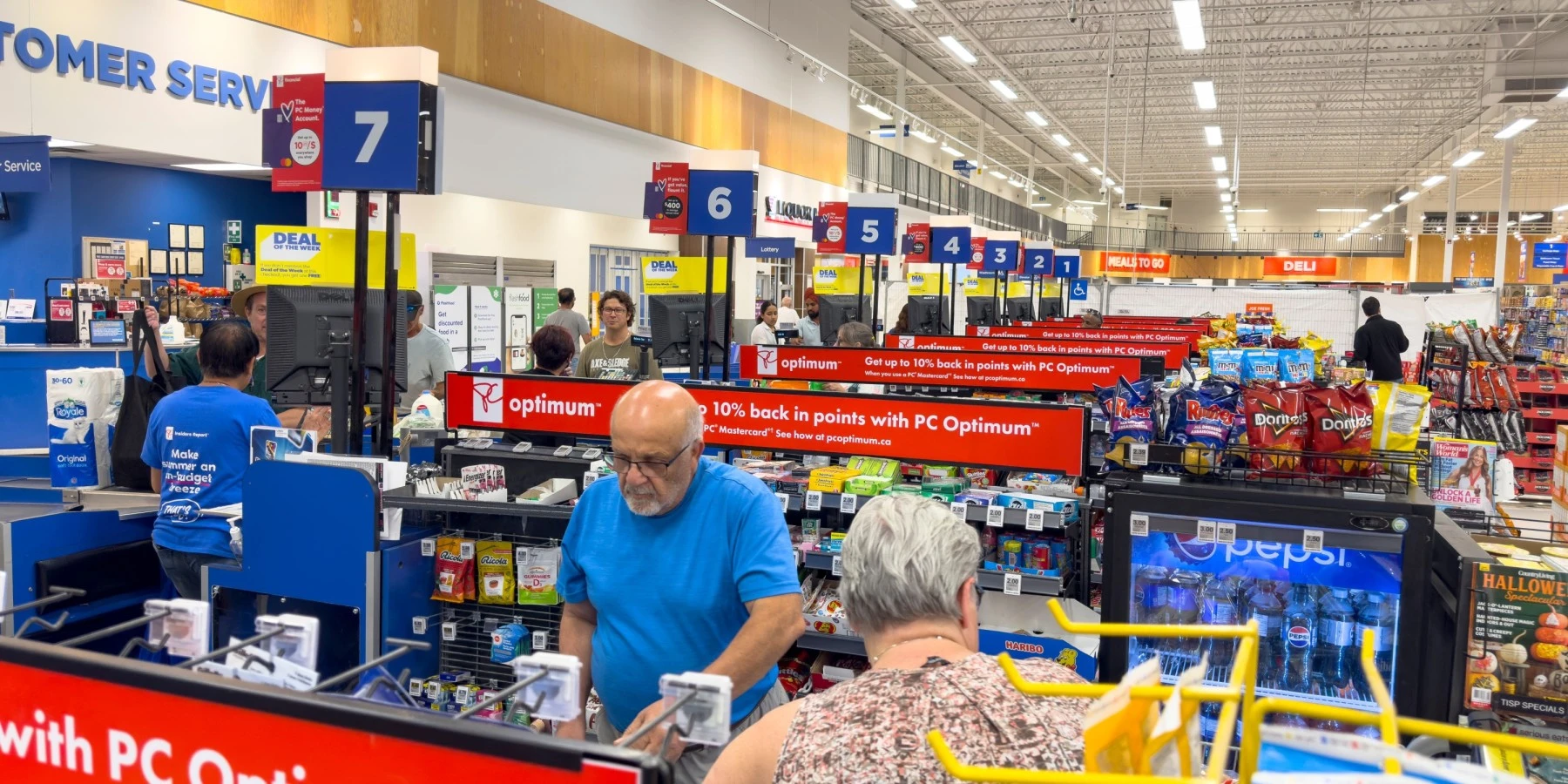 Groceries
Groceries
Grocery costs always vary based on individual choices. Growing your own vegetables can lower expenses during the spring and summer months while choosing organic products is generally more expensive.
In Winnipeg, a family of four spends around CA$1,800 per month on groceries, while a single person may spend around CA$420. Couples generally spend around CA$840 per month.
Dining out
Winnipeg hosts over 1,100 restaurants that showcase the city’s international and regional cultures.
There are plenty of options for every budget and preference.
Cheap eats: CA$5-12
- Hao Hao Restaurant (Chinese cuisine)
- Barka Pita Bakery (Shawarma and Lebanese cuisine)
- Sargant Taco (Mexican cuisine)
- Kokeb (Ethiopian cuisine)
Mid-range: CA$15-30
- Peasant Cookery (European-inspired dishes and craft beer)
- Gusto North (Modern Italian cuisine)
Fine dining: CA$30-100
- deer + almond (Fusion cuisine with a focus on locally sourced ingredients. The plates are designed for sharing.)
- Yujiro (Japanese cuisine)
Getting around in Winnipeg
 How much you spend on commuting in Winnipeg depends on your mode of transportation.
How much you spend on commuting in Winnipeg depends on your mode of transportation.
Taking the bus is a cost-effective and easy way to get around Winnipeg.
A single ride costs CA$3.15, or you can purchase a monthly pass for CA$102.50. Discounts are available for seniors who pay CA$73.05, and youth, who pay CA$81.65. To save even more, the Peggo card is a reloadable smart card that offers lower fares.
For Winnipeg car owners, the average monthly fuel cost for driving ranges between CA$80 and CA$100, depending on your driving habits and how often you use your car. These numbers vary depending on the fuel efficiency of your car, and how often and far you commute.
Winnipeg is a bike-friendly city with lots of bicycle-only lanes and paths. The only cost of riding a bike is occasional bike maintenance.
Parking in Winnipeg
Parking costs in Winnipeg vary depending on location and time of day.
On-street parking is between CA$1.75 and CA$2.75 per hour from Monday to Saturday, between 8 AM and 5:30 PM, and is free during evenings (5:30 PM to 8 AM), Sundays, and holidays.
Saturdays offer two hours of free parking, except in areas near the Health Sciences Centre and St. Boniface Hospital.
For downtown parkades and parking lots, hourly rates range from CA$1-5, with daily maximums from CA$4-14, and evening rates on event nights from CA$1-8.
The RBC Convention Centre charges CA$22 for 24 hours, CA$10 for evening parking (5 PM to 5 AM), and CA$265 for monthly parking (6 AM to 6 PM).
What do our customers say?

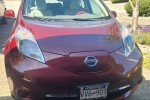
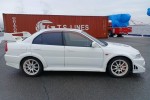


 Groceries
Groceries![How much do you need to earn to live comfortably in Winnipeg? [2025] How much do you need to earn to live comfortably in Winnipeg? [2025]](https://cdn.topmove.ca/image/blog/d52ddc1f425f60fd553dcc00f7eb0fb5.jpeg)
![How much do you need to earn to live comfortably in Winnipeg? [2025] How much do you need to earn to live comfortably in Winnipeg? [2025]](https://cdn.topmove.ca/image/blog/3e780e58bc8d35a328c2f303093451ed.jpeg)
![The Cost of Living in Canada [2025] The Cost of Living in Canada [2025]](https://cdn.topmove.ca/image/blog/fd5e6f8de7a01a874376620f785ffdba.jpeg)
![The Cost of Living in Montreal [2025] The Cost of Living in Montreal [2025]](https://cdn.topmove.ca/image/blog/3d9ba911fae51ef6bf042019500f2c4b.jpeg)
![The Cost of Living in Toronto [2025] The Cost of Living in Toronto [2025]](https://cdn.topmove.ca/image/blog/ded0549bf885e2463f6b3516d9f8f021.jpeg)
![The Cost of Living in Victoria [2025] The Cost of Living in Victoria [2025]](https://cdn.topmove.ca/image/blog/012c60baf3a9dd52b2112857fe508e4c.jpeg)
![The Cost of Living in Edmonton [2025] The Cost of Living in Edmonton [2025]](https://cdn.topmove.ca/image/blog/85d8f0085c5276a3f3add5828109b82a.jpeg)
![The Cost of Living in Calgary [2025] The Cost of Living in Calgary [2025]](https://cdn.topmove.ca/image/blog/44a5bcb6ebf6c658f5c5fe30ab7077c9.jpeg)

![The cost of living in Ottawa [2025] The cost of living in Ottawa [2025]](https://cdn.topmove.ca/image/blog/05c56698337852b128efa8b1144e6466.jpeg)
![How much do you need to earn to live comfortably in Calgary? [2025] How much do you need to earn to live comfortably in Calgary? [2025]](https://cdn.topmove.ca/image/blog/46fef724030602a02f51110ffb3ac569.jpeg)
![How much do you need to earn to live comfortably in Toronto? [2025] How much do you need to earn to live comfortably in Toronto? [2025]](https://cdn.topmove.ca/image/blog/de7b110360e9510bfcb89724b7ef9af4.jpeg)
![How much do you need to earn to live comfortably in Victoria? [2025] How much do you need to earn to live comfortably in Victoria? [2025]](https://cdn.topmove.ca/image/blog/f0bdeb7f43a3340afba84793c4fddbac.jpeg)
![How much do you need to earn to live comfortably in Vancouver? [2025] How much do you need to earn to live comfortably in Vancouver? [2025]](https://cdn.topmove.ca/image/blog/7036030cc91de9cff4153dc88aa88f85.jpeg)
![How much do you need to earn to live comfortably in Montreal? [2025] How much do you need to earn to live comfortably in Montreal? [2025]](https://cdn.topmove.ca/image/blog/80e0ee82a5a92d9451b96ff875513ee4.jpeg)


